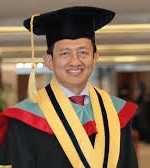The Effect of Principal Leadership and Educational Personnel Performance on Quality of Education in Tebing Tinggi City, Indonesia
https://doi.org/10.62157/ijbefs.v1i2.19
Keywords:
Principal leadership, Educational personnel performance, Education QualityAbstract
Quality of education has now become necessary for improving the quality of life of people throughout the country. Improving the quality of education will be directly proportional to the quality and level of welfare of the community, meaning that education is one way to improve the welfare and life of the community. Therefore, related to the issue of education, it is demanded that the government or the state must be present at the front in realizing the ideals of the state and nation. This study uses quantitative analysis techniques through Multiple Linear Regression. The results showed that the Principal's Leadership and Educational Personnel Performance influenced the Quality Improvement of Graduates at MTs Bustanul'Ulum Guppi Tebing Tinggi City. The simultaneous (overall) effect of the Principal's Leadership and Education Personnel Performance variables on improving the quality of education is 73.00%. The magnitude of the value is strong. Partially, the Principal's Leadership Variables and the Performance of Education Personnel were tested in influencing the Quality Improvement of Graduates at MTs Bustanul'Ulum Guppi Tebing Tinggi City: The results of the Principal's Leadership study affect the Quality Improvement of Graduates by 43 percent and Educational Personnel Performance of 30 percent. Other influences that are not studied or evaluated affect the quality of public services by 27 percent.
References
Dewi, R. V. K. (2020). Kebijakan Tentang Pengembangan Pendidikan di Indonesia. Jurnal Studi Pendidikan, XV(1), 1–29.
Harahap, H. H. (2023). Examining the Effect of Job Description on Employee Performance at PT. Karya Hevea, Indonesia: A Mediating Role of Compensation. Global Journal of Business, Economics & Social Development, 1(1), 31–39. https://doi.org/10.56225/gjbesd.v1i1.5
Hutagalung, H., Gunawan, D., & Pratiwi, R. D. (2023). The Role of TikTok as A Mood Booster on Employees’ Performance in the Trade Sector during the COVID-19 Pandemic in Tebing Tinggi, Indonesia. Global Journal of Business, Economics & Social Development, 1(1), 45–53. https://doi.org/10.56225/gjbesd.v1i1.7
Mahmudi, B., & Nurhayati, E. (2015). The influence of board governance characteristics on intellectual capital performance (empirical study on listed banks in BEI 2008-2012). Review of Integrative Business and Economics Research, 4(1), 417–430.
Makmun, H. (2015). Kepemimpinan kepala sekolah dalam meningkatkan profesionalisme guru IPS di SMP Islam Jabung Kabupaten Malang. Universitas Islam Negeri Maulana Malik Ibrahim.
Moeheriono, M. (2018). Pengaruh Pendidikan Dan Pelatihan Kepemimpinan Tingkat III Terhadap Motivasi Kerja, Karier Dan Kompetensi Pegawai Pemerintah Provinsi Jawa Timur. Ekuitas (Jurnal Ekonomi Dan Keuangan), 9(2), 217–242. https://doi.org/10.24034/j25485024.y2005.v9.i2.328
Mulyasa, E. (2004). Manajemen berbasis sekolah: konsep, strategi dan implementasi. Remaja Rosdakarya.
Nyak Amir. (2014). Budaya Organisasi Sekolah. Visipena Journal, 5(2), 132–139. https://doi.org/10.46244/visipena.v5i2.278
Samani, M. (1999). School Based Management: Strategi Pemberdayaan Sekolah dalam Kerangka Desentralisasi Pendidikan Menuju Pendidikan yang Berkualitas. Makalah Seminar, 23.
Saputro, R., Wahyuni, E. S., & Prayogo, I. (2023). Investigating the effect of merdeka belajar kampus merdeka on the success of its implementation: Moderating role of readiness to change. Global Journal of Business, Economics & Social Development, 1(1), 7–15. https://doi.org/10.56225/gjbesd.v1i1.2
Sedarmayanti, S. (2020). The Strategy of Link and Match between Higher Education Quality and The Demand for The Need of Job Field to Produce Qualified Human Resources. Jurnal Wacana Kinerja: Kajian Praktis-Akademis Kinerja Dan Administrasi Pelayanan Publik, 5(3), 13–20.
Sedarmayanti, S., & Rahadian, N. (2018). Hubungan Budaya Kerja dan Lingkungan Kerja Terhadap Peningkatan Kinerja Pegawai Pada Lembaga Pendidikan Tinggi. Jurnal Ilmu Administrasi: Media Pengembangan Ilmu Dan Praktek Administrasi, 15(1), 63–77. https://doi.org/10.31113/jia.v15i1.133
Siagian, S. P. (2006). Sistem informasi manajemen. Bumi Aksara.
Siagian, S. P. (2008). Manajemen sumber daya manusia. Bumi aksara.
Suprayitno, H., Ratnasari, V., Saraswati, N., & Fajrinia, C. P. (2018). Sample Based Trip Length Distribution Quality based on χ^2 and Mean Absolute Error Value. IPTEK The Journal for Technology and Science, 29(1), 5–10. https://doi.org/10.12962/j20882033.v29i1.2207
Taniya, N., & Widjaja, A. W. (2023). The Effect of Network Capability and Organizational Learning Capability on Transformational Leadership in Forming Innovative Work Behavior Mediated by Critical Thinking Skills at PT Bank Bukopin, Tbk. IDEAS: Journal of Management & Technology, 2(2), 29–48.
Virgana, V., Suendarti, M., Lapasau, M., & Hasbullah, H. (2022). Measuring the Effects of Adversity Quotient, Organizational Culture and Job Satisfaction on Special School Teachers’ Organizational Commitment. International Journal of Educational Management and Development Studies, 3(2), 21–44. https://doi.org/10.53378/352886
World Bank. (2002). The World Bank Annual Report 2002. World Bank Publications. https://doi.org/10.1596/0-8213-5157-5
Xi, C., & Halabi, K. N. M. (2023). Online Teaching at Universities in China: Advancement of Educational Technology or Reality’s Helplessness? Global Journal of Emerging Science, Engineering & Technology, 1(2), 91–97. https://doi.org/10.56225/gjeset.v1i2.24
Downloads
Published
How to Cite
Issue
Section
License
Copyright (c) 2023 Authors

This work is licensed under a Creative Commons Attribution 4.0 International License.




























